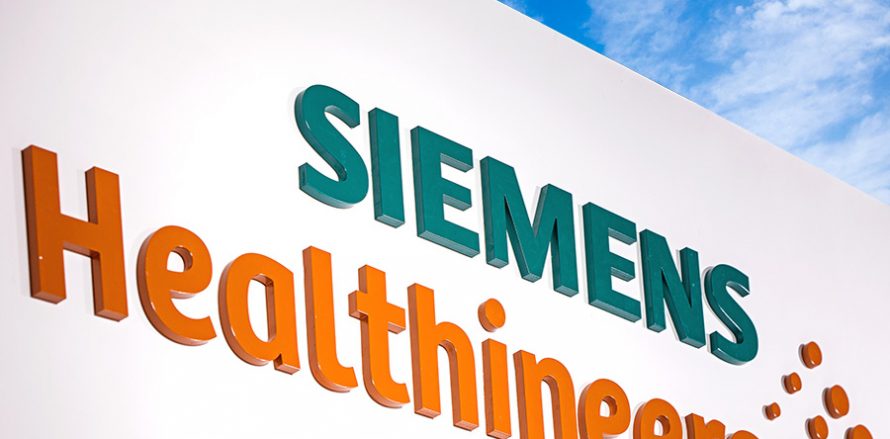- Siemens Healthineers announced Monday it will provide Geisinger Health System with its latest diagnostic imaging and artificial intelligence-enabled applications, among other technologies, under a 10-year partnership.
- Siemens said the two organizations are looking to build on an already decades-old relationship as it supplies the Danville, Pennsylvania-based integrated healthcare provider with digital health tools. According to the medtech, the new collaboration with Geisinger is one of the company’s largest partnerships of its kind in North America.
- A Siemens spokesperson told MedTech Dive the financial terms of the relationship with Geisinger are not being released, but said under the value-based care arrangement the organizations will “jointly define initiatives to work on” and metrics such as cost and quality “will be determined as each initiative is defined.”
The collaboration between Siemens and Geisinger is just the latest example of medtechs and providers joining forces to tap medical technology in order to drive more digital healthcare.
Even before the coronavirus pandemic shook the healthcare industry, providers were faced with a continuous need to upgrade medical technologies, optimize existing processes and adopt digital health tools to meet growing demands for better patient care.
Siemens contends its Value Partnership program is an effort to help providers optimize their processes and capabilities and advance the level of innovation in their healthcare organizations. Over the next decade, Siemens plans to provide Geisinger with on-site staff and resources to help support clinicians’ workflows and data-driven decision-making.
As for the technology itself, the medtech will be providing Geisinger with a range of diagnostic imaging equipment for MRI, CT, PET, X-ray, C-arms, and ultrasound, along with AI-enabled and cloud-based management technologies. The latter include:
- AI-Rad Companion: an AI-enabled family of vendor-neutral, multi-organ augmented reading solutions that automatically prepare clinical input to be interpreted by radiologists
- Syngo Virtual Cockpit: software for remote scanning assistance meant to improve access to care and increase workforce productivity
- Teamplay: a cloud-based departmental performance management application designed to help bring together healthcare professionals and offer an intelligible overview of performance data
“What we are most excited about is leveraging the future promise and capabilities of artificial intelligence to respond to a rapidly changing healthcare environment,” said David Pacitti, president and head of the Americas at Siemens Healthineers, in an email to MedTech Dive.
Geisinger, which includes 13 hospitals and a 600,000-member health plan, is a healthcare system serving 1.5 million consumers in Pennsylvania and New Jersey with a history of tech partnerships and innovation. It was ranked recently among the most innovative U.S health systems based on a survey of more than 550 healthcare leaders.
As part of its Geisinger at Home program, the healthcare system is expanding the use of technology with remote patient monitoring, telemedicine and patient risk stratification through the development of a chronic disease command center. And, more than 250,000 participants have been enrolled in Geisinger’s MyCode Community Health Initiative, which the healthcare provider contends is the world’s largest precision medicine study of its kind.
MyCode combines clinical data from electronic health records with genetic sequencing to enable the prevention or detection of early-onset cancer and cardiovascular events for patients who are at high risk for these inherited diseases.
In September, Geisinger announced a multi-year partnership with precision medicine company Tempus to leverage artificial intelligence for the development of diagnostic and prognostic tools for cardiovascular disease. The two organizations are looking to use machine learning to predict life-threatening cardiac events so that clinicians have the opportunity to intervene before it is too late.
Among the patient scenarios Geisinger wants to be able to predict is which patients will be admitted or readmitted to the hospital over the short term (within 30 days to six months), as well as the ability to forecast a heart attack within the next five years.
Recent Posts
- List of Top 10 Genetics and Genomics Conferences in 2025 in London UK Europe US, Germany, France, Asia, China, Saudi, UAE and Japan
- A Review of AI in Clinical Trials Market Reports 2025-2030 in London, UK, and Europe: Trends, Forecasts, Growth, and Segments
- List of Top 10 Health Tech Companies in 2025 in London, UK, Europe, Asia (India, China, Japan), Saudi Arabia, UAE, USA, and Germany.
- List of Top Healthcare Exhibitions 2024-2025 in London, UK, Europe, Asia, and the USA
- A Review of Top 10 Digital Health Market Size Reports: 2024, 2025, and 2030 in the UK, Europe, Asia, USA, Middle East, and Saudi Arabia
- Digital Health Visionary Alan Spiro Joins Laguna Health
- Siemens Healthineers, Geisinger ink 10-year digital health partnership
- NHSX launches Tech Plan to consult on what the unit should be doing
- Stanford Medicine’s 2020 Health Trends Report spotlights the rise of the data-driven physician
- Saudi Arabian wealth fund to invest in digital health startup Babylon
